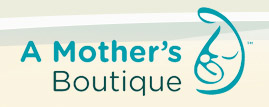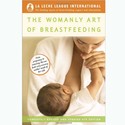In our last post, we met Kirsten Pitini, who was suffering from postpartum anxiety and struggling to find helpful resources in her area. Today, we spoke with Brittany Edge, a Licensed Marriage and Family Therapist who serves as a regional coordinator for Postpartum Support International. Brittany experienced depression and anxiety during both her pregnancies, and after her son was born–so she comes into this work with personal experience as a mother who tried to seek help.
She says, “I have a mental health background, and yet I was trying to get help and was told this was just part of what being a mom was about. I kept thinking why would anyone procreate if this is what it’s like??”

According to Brittany, a lack of understanding of postpartum mood disorders by healthcare providers leads to women falling through the cracks. Some healthcare providers tend to normalize anxiety, telling moms, “Oh, of course you’re worried about the baby!” There are things that make perinatal mood disorders unique, and Brittany thinks most mental health professionals generalize as if they were treating regular anxiety or depression.
Others turn to medication first, perhaps without fully understanding what the mother is experiencing. Brittany tells us, “There are a number of moms fearful of medication, especially if they are breastfeeding. Moms don’t want to explore that option first. I don’t think they have to all the time. Sometimes, if their anxiety or depression is severe enough, that does require medication. But moms have to weigh the cost and benefits and resources are minimal.”
Due to a lack of awareness of the spectrum of postpartum anxiety, even mental health professionals fail to create a safe place for mothers to discuss their symptoms, even in treatment. As Kirsten mentioned, she felt afraid to be honest about her visions because she worried her children would be taken from her.
Brittany responds, “I think mothers who are having those kinds of thoughts and are not talking about them with mental health professional because of those fears are more likely to hurt themselves than anything because they are hopeless. They don’t believe anything can change for them. Mental health professionals need to do a thorough assessment before determining the risk to mothers and their children.”
And so, her mission is to help spread awareness of postpartum mood disorders, particularly to healthcare professionals and pediatricians–anyone who has contact with new mothers.
During the presentations she gives to both these workers and to mothers, Brittany talks about her own struggle. Rather than lead off with statistics and prevalence and definitions, she shares her own experiences both to help her own healing and to have people witness the struggle she went through. “I think it resonates with mothers in a different way to hear me share my story,” she says.
“One thing I stress is that there’s a spectrum these disorders exist on, which ranges from mild to pretty severe. I always emphasize that [postpartum anxiety or depression] is very different from baby blues. If you have symptoms beyond 2 weeks after the baby is born, it’s something else,” Brittany says.
She continues: “I also separate PPD or -anxiety from psychosis. One of the disservices the media does is pump out information about psychosis and lump it with postpartum depression. The disorders get blended and that shames mothers into silence when they feel like they need help.”
As an organization, Postpartum Support International provides many different resources for families. For starters, their website contains tons of information outlining various perinatal mood and anxiety disorders (what to look for, what it means, risk factors that might make moms more susecptible, etc.). There is also a section of the website for family members, helping them identify what to look for in their partner and telling them what they can do for help if they notice a new mom really showing some warning signs.
PSI maintains a warm line, which means moms (and loved ones) can call 1-800-944-4PPD any time, day or night, to speak with a real human being–according to Brittany, the folks on the other end of the phone are all either mental health professionals or mothers who come from a place of experience and have undergone specialized training to support these mothers, follow up with them, and make sure they find the help they need.
Many times, this means coordinators like Brittany travel to meet with moms and talk with them, hear them, and validate what they are experiencing. Coordinators also arrange for presentations with moms’ groups (like MOPs or other New Mom cafe meetups).
Given limited resources and few practitioners who are really equipped to help, Brittany hopes mothers will seek support from groups of mothers. “Developing social support is important because anxiety and depression isolate moms,” she says. “New moms are already pretty isolated because so much of their day is spent taking care of children.”
She does caution that it’s important to try to find mothers struggling with similar issues, because if a mother is struggling and she’s spending time with mothers who don’t seem to be having a hard time, this can be even more isolating for a mother experiencing a postpartum mood disorder. “It’s important to be with other moms who are talking about the ways they’re struggling, too, and are non-judgmental,” she says.
Women seeking support can contact Brittany (or the regional coordinator closest to them) via Postpartum Support International’s website. They can also phone in each Wednesday for group chats, while fathers can call the first Monday of each month for advice in supporting their partners.
Have you contacted PSI for support? Leave us a comment to share your experiences.










